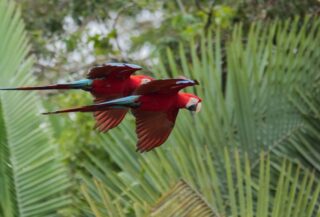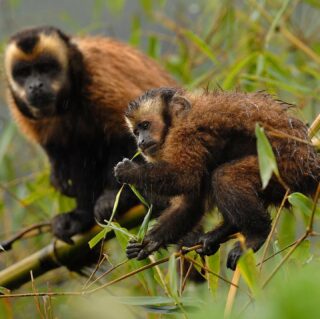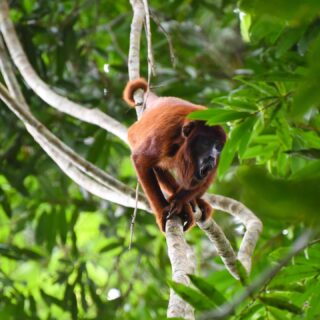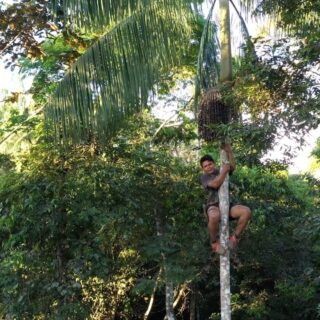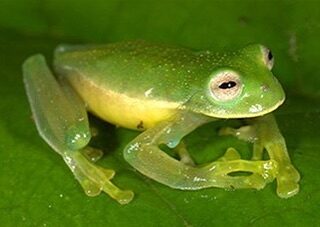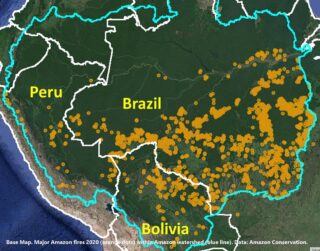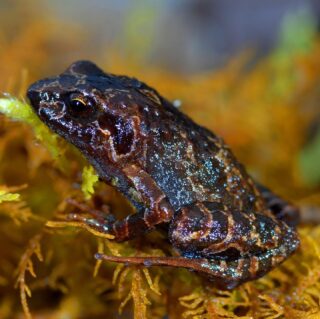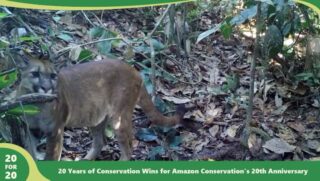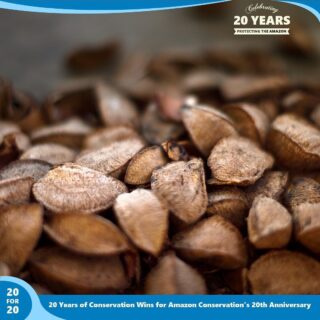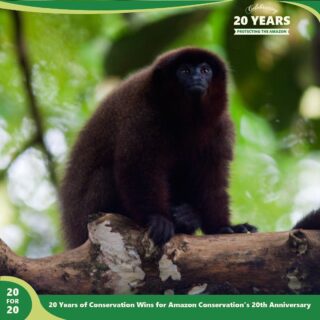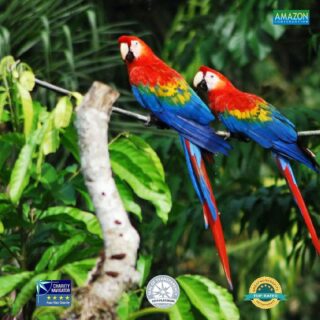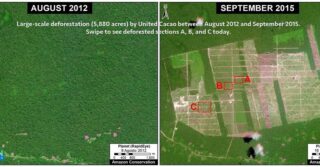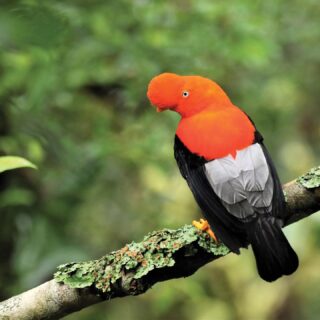How Organic Certifications Encourage the Sustainable Management of Brazil Nuts
June 24, 2024
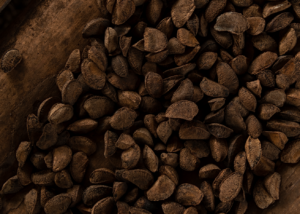 The Brazil nut (Bertholletia excelsa) is a key product of wild collection in the Amazon forests and serves as a crucial source of income for families in the Madre de Dios region of Peru. For years, our alliance with our sister organizations Conservación Amazónica – ACCA and Conservación Amazónica – ACEAA has helped Brazil nut, açaí, and other forest product harvesters earn organic certifications to follow forest-friendly guidelines that keep production sustainable and mitigate harm to Amazonian forests.
The Brazil nut (Bertholletia excelsa) is a key product of wild collection in the Amazon forests and serves as a crucial source of income for families in the Madre de Dios region of Peru. For years, our alliance with our sister organizations Conservación Amazónica – ACCA and Conservación Amazónica – ACEAA has helped Brazil nut, açaí, and other forest product harvesters earn organic certifications to follow forest-friendly guidelines that keep production sustainable and mitigate harm to Amazonian forests.
What exactly is the significance of organic certification? Organic certification is an incentive mechanism that assesses sustainable wild production for the development of specific markets. Producers must develop proper pre and post-harvest precautions and complete information specific to the harvesting of forest products like Brazil nuts, as well as follow specific norms for organic wild production. Official certification is granted by the international certifier CERES – Certification of Environmental Standards after a long process of inspection, assessments, and evaluation of supporting documentation by a certification committee.
Overall, these certifications, in combination with Peruvian harvesting laws and standards, help to ensure that safe harvesting practices are being implemented without depleting natural forest resources. Recently, Conservación Amazónica – ACCA began working with 48 Amazonian Brazil nut collectors to help renew their organic certification as they underwent the Conformity Evaluation Service, which is based on national and international regulations for organic certification, such as Peruvian Law 29196 for the Promotion of Organic or Ecological Production, as well as the regulations of the European Union, the United States, and Canada. To follow these guidelines to maintain their certification, these Brazil nut harvesters have demonstrated how they avoid the use of contaminants and pesticides, while consistently training in compliance with Peruvian and international organic production standards. Additionally, they continue to implement the considerations of the Peruvian Technical Standard on Good Collection Practices to ensure production stays sustainable.
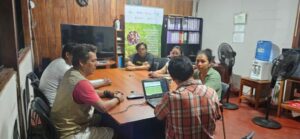
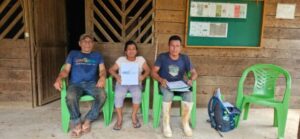
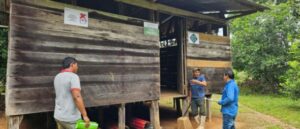
Sustainable management of the Brazil nut is essential for ensuring stable livelihoods and contributing to forest protection, thereby supporting the sustainable economic development of these communities. Read more about our work with productive forest management here.

